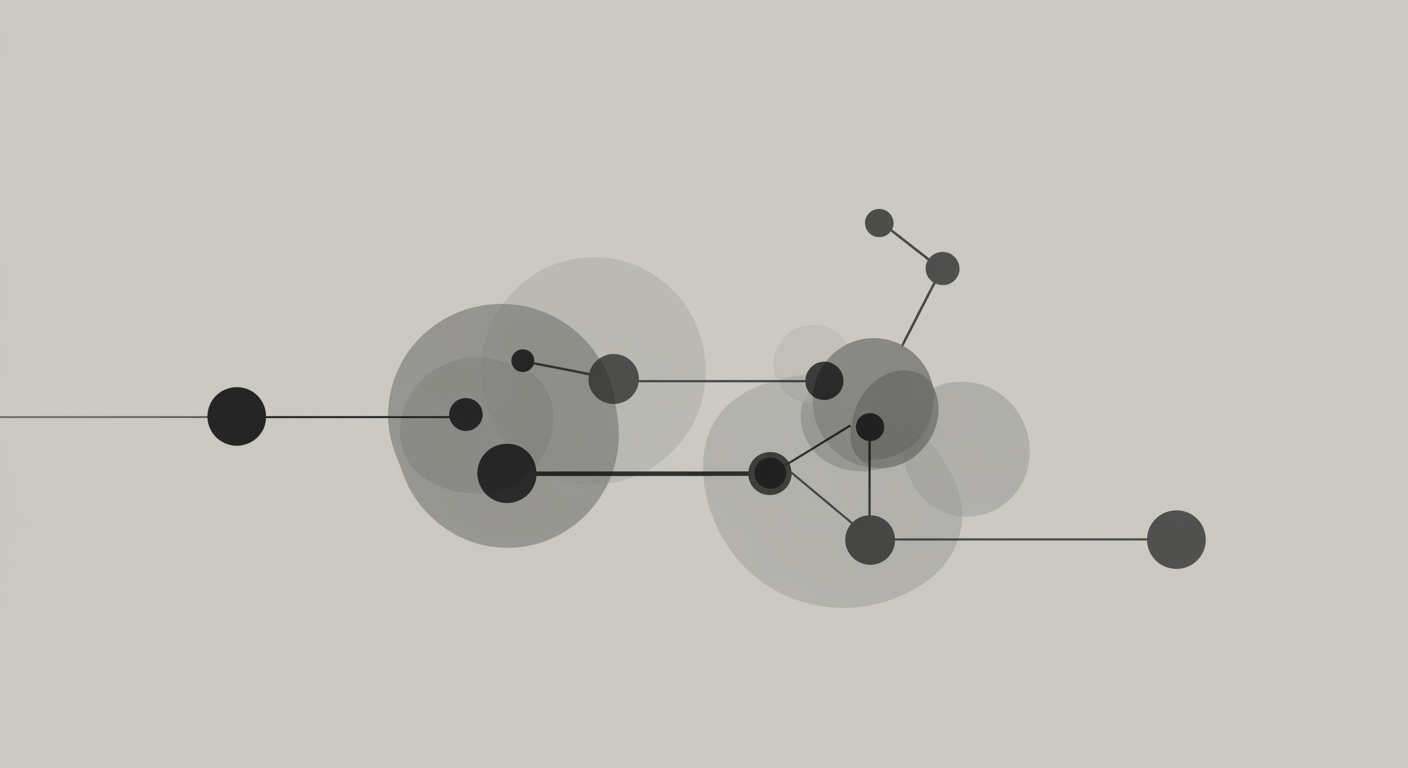Welcome to the Research and Strategy Services at in today's fast-paced.


When anyone has mental health problems they cannot live their full potential, and I’ve seen first-hand that some conditions are like having a life taken away from you, especially when symptoms are full blown. ADHD is a mental health condition that is surprisingly common in younger people and can deeply affect quality of life when severe and untreated, as well as involve other mental and physical health conditions. Here I’d like to share insights on what I found in my clinical practice to be a breakthrough approach to ADHD therapy, which can help those suffering to achieve a meaningful and successful life.
From day one my interest in health has been focused on the brain.
My interest stems from my whole family having ADHD. You can imagine the chaos! Personally I had constant concentration issues, yet would obsessively over-think things that were not important. This made stress management with my family a huge challenge, and the day-to-day unpredictability meant I couldn't really plan my life at all.
Fortunately, this originally got me into Neurofeedback in order manage my own stress, and from that point on I was interested to learn medicine alongside how new technologies can help brain conditions as well as for performing better in daily life.
From neurofeedback I went on to study natural medicine from the perspective of helping to regulate brain chemistry. Then I studied medical grade bioscanning methods, and continue to develop novel yet effective treatment methods that work best when they are combined together.

From my own difficulties leading to finding solutions that worked, I began to realize there was something important I can offer from what I learned and applied. I felt compelled to share it and dedicate my professional life in this area.
I started my first clinic in 2006 as a biofeedback specialist with a focus on solutions that help with depression, anxiety, ADHD and mental health conditions such as trauma. However I realized that biofeedback has limitations, principally because it's a subtle technique that takes time to build-up for these types of treatments.
This led me on the path to developing a health optimizing clinic progressively combining the different methods I outlined. So I made investments to do advanced medical studies at leading institutions in Germany and Switzerland over 7 years, and became a doctor of natural medicine and also a functional nutritionist, bringing in the dimensions of physiology and brain chemistry.
I learned to incorporate the latest methods such as laser stimulation and electromagnetic treatments to improve cell regulation and the capacity of cells to actually absorb nutrients put into the system, which naturally went hand-in-hand with nutritional management.

This journey of my constantly evolving my clinical practice is a progressive kind of endless learning, partly because science and technology are always developing, so you never stand still. It's also very brain focused, because the brain along with the central nervous system regulates almost everything in the body. Brain functioning in itself is complex, because it is so important to approach mental conditions from both the psychological and the cognitive dimensions of wellbeing.
For example, if brainwaves are out of sync even when someone gets a full night sleep, they don't get adequate restoration and cellular repair, which leads to compensation in the daytime. Over time this causes mental fatigue, which is only made worse when trying to overcome it with mental effort.
Research shows that this can progress to a feeling of helplessness, because when a person tries therapy and it doesn’t work, they then try even harder and it still doesn't work. Then if nothing feels like it working over time it can lead to depression due to lack of hope.
When I first came across NeuroTracker in my constant search for emerging neurotechnologies, I was already confident it would be valuable simply because it had scientific backing the likes I’d never seen with any other therapy tool. In fact I was shocked - how can one company have this much independently validated research?
I got to discover how valuable a therapy it really is because I had already experienced a very severe traumatic brain injury. I was crossing the road one day and a truck ran through a red light and hit me from behind.

Determined to get better I worked with 11 doctors and two neurologists in Canada that I put faith into. But after a year and a half there was no progress and no solution they could offer, other than simply waiting for the injury to heal. In the end I felt devastated, but this eventually convinced me I need to take recovery into my own hands because conventional medical treatment simply had nothing left to offer.
It was then that my experience of using NeuroTracker stood out as very different to all the other things I’d come across. In the beginning I could only manage small amounts of training because of my cognitive symptoms, just one 6-minute session every other day.
A week later I realized that my eye movement was smoother for sure. Then I felt my brain a little sharper. Then my mobility and my hand-eye coordination problems improved – for example I was able to use a knife again while eating within 2 weeks of training. And overall my motor control continued to get better over time, along with reduced visual and cognitive fatigue.
I also noticed the rising increase in brain performance with Neurofeedback, which it worked well synergistically with, so I began to integrate it with patients as well as for myself.
For me it was a great discovery, not just because it helped me finally begin the path to recovery, but because it was a role model therapy for what my clinical practice is all about, and it fit perfectly with my quest to develop the best treatment possible for ADHD patients through a specialized clinic.
Our approach at the ADHD Breakthrough Center is based around the goal of offering patients comprehensive therapy by first assessing their needs across a wide spectrum. We believe it is essentially to genuinely try and understand the patients’ real challenges and provide multiple solutions.
Perhaps one aspect which makes us most different from other services is what we call our assessment of each person’s ‘Unique Brain Code’.
Principally this allows us to move past the sometimes linear focus on attention deficit and hyper-impulsivity. Because in reality the latest research shows that ADHD is typically comorbid with many other neuropsychological, behavioral and even physiological conditions, that often get overlooked. Yet these critically need to be addressed to help patients get lifelong benefits from therapeutic interventions.
For example, I see ADHD clients that have specific problems with grammatical reasoning, or spatial awareness. Sometimes they actually have an unresolved post-concussion issue, or severe allergies because of impaired immune system. Or it maybe that they have some form of parasitic infections, or simply that their oxygen levels are really low. Then there are more common issues like associated anxiety, depression and trauma, which can be bigger problems in their own right.
So the norm is actually quite complex, but fundamental to understand at the outset. This is why we always start with a comprehensive multidimensional assessment of holistic cognitive functions and physiological health.
From this we determine our Unique Brain Code to work from, why I believe is a key difference in the success of our applied range of therapies.
Here is an overview of our assessment approach, along with the therapies we mix and matched according to our clients needs and their realistic budgets.

• Get a complete picture of disease history.
• Full mental health examination
• Comprehensive cognitive assessment.
• Bioscan assessment to understand biochemistry composition
• Functional brain wave assessment
• Focused examination of cognitive deficits
• Cognitive Behavioral Therapy (CBT)
• Mental health counseling
• Cognitive training for strengthening mental performance and CNS functioning
• Specific skill building for cognitive deficits
• Neurofeedback to normalize and optimize brain wave frequencies
• Nutritional management
• Natural medicine
The goal is consolidating everything we learn into the therapeutic aspects into one integrated approach, with brain health at the center.
A nice example of our treatment approach was with a 12 years old gifted ADHD child that we’ll call Charles.
Charles’ mother brought him for therapy after he was almost expelled from school, labeled as defiant. He was very easily distracted, had a very short attention span, but with hyper focus on certain things he was especially interested in.
Overall Charles was a highly sensitive child with a lot of control and mood issues, escalating anger problems accompanied with meltdowns, severe digestion problems with high susceptibility to getting flus, and major insomnia since infancy. He also had movement and coordination problems, for instance being unable to play any kind of ball game because he couldn't catch the ball.
So once we did a thorough assessment of his Unique Brain Code. One thing that stood out from the beginning was he that had a the profile of a very gifted child, which had not been recognized by anyone other than by his mother.
We also found that Charles experienced extreme sensory overload - seeing, hearing and feeling everything without being able to filter.
We determined that the core treatment modalities to deal with his condition was Neurofeedback and NeuroTracker training, cognitive behavioral therapy and nutritional management to improve digestion.
Additional family counseling was recommended, especially around the need to understand how to talk to Charles based on a deeper understanding of what his real problems were.
With this treatment program we saw a spectrum of benefits emerge over different timescales.
• First we saw movement and coordination gains after 3 weeks of NeuroTracker training. Walking and gait improved noticeably, and Charles could now play games catching balls with his father, which was a lot of fun for both of them.
• His digestion was improved by around 80 percent within four weeks of the new dietary program.
• Within six weeks Charles’ attention was improved by over 50%. Cognitively his concentration levels and academic performance improved continuously, along with increased psychological energy.
• Within three months his hidden leadership abilities started to emerge, and he was able to differentiate himself from others in terms of his talents. Perhaps most importantly he was able to share the perspective references of other people, and interpret them without distortion.

Overall, there were large objective and subjective improvements in assessments of Charles’ movement, mood, confidence, self-esteem, communication and social skills, academic performance and general health.
Fast forward about a year later and Charles was actually achieving straight A's at school and getting offers from prestigious schools!
This was one case where the mother was extremely happy with the transformation, she reported often crying tears of happiness and relief when he came home from school, no longer having to worry about the stress of meltdowns.
What we learned in Charles’ case was how important it was to deeply understand the complexity of his physiological, cognitive, psychological and social challenges, in order to apply appropriate treatments to unlock a trapped child. This is our commitment to all our patients and their families that we help.
Science and technology are continuously changing the face of medicine. On one hand there is the path to explore new technologies to kind of branch out, on the other hand there is a lot of value still to gain in consolidating and better integrating how existing therapies are applied. For example, with NeuroTracker I see strong potential as functional biomarker or brain health, which is why we’ve started using it as our one of our baselines.
Then also continuing to solve two key problems, which is one, that different medical disciplines tend not to work well together, and two, oversimplification of medical issues and respective solutions. This is a key factor in how we are evolving our Unique Brain Code approach, we desperately want to avoid guesstimating, and instead be able to effectively focus on precise medical solutions for each patient we help.
It’s an continuous journey to discover more, know more in practice, and be more precise in terms of treatments.
If you are interested to learn more how our integrated services and remote therapies can help you or you family, then visit our website where you can take an ADHD survey and book a free discovery call with me.









Welcome to the Research and Strategy Services at in today's fast-paced.

Learn about Marc Van Loken's growing mission for brain health advocacy with Marvalous Health.

Understand the unique challenges of gifted ADHD kids and strategies to help them find balance.

Learn about two pioneering centers led by Dr. Kakavas that integrate neuroscience, biomechanics, and elite rehabilitation methods.
.png)